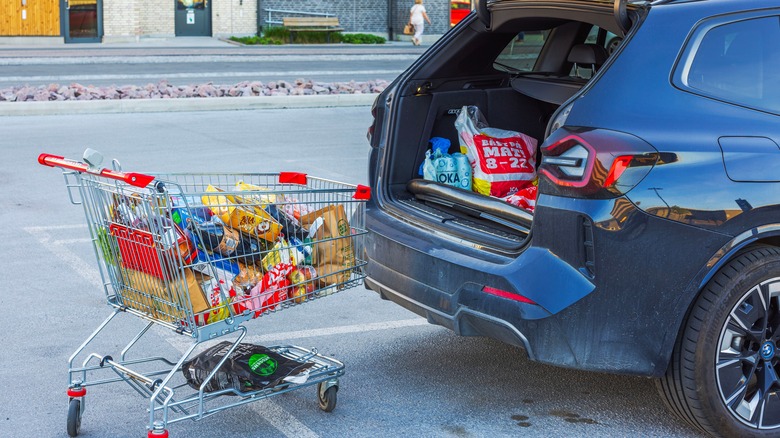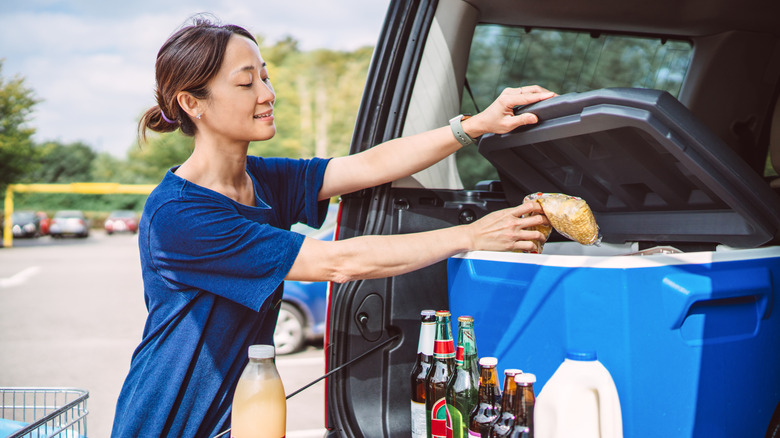How Long Can You Safely Leave Your Groceries In The Car?
We may receive a commission on purchases made from links.
If you're planning to run a few errands around town, saving the grocery store for your last stop is probably best. It doesn't take long for cold gallons of milk or chilled proteins to spoil; and if you let them sit for too long, you might have to throw out an entire grocery haul before you can open anything.
Still, if you forget about a final destination or hit a frustrating amount of traffic, know there is a short grace period where groceries left in a car will stay good. According to the USDA, you can safely leave groceries in the car for up to two hours. Generally, this is the absolute maximum amount of time groceries will stay safe outside of a fridge or freezer. If you're shopping in the summer, however, or whenever the temperature outside of a car is over 90 degrees Fahrenheit, this time slot shortens to just one hour. Even in colder temperatures, the rays of the sun can quickly heat the interior of the car, so to avoid a food safety mistake, abide by the two-hour limit always.
As food warms, it becomes vulnerable to bacteria growth, so if you get home and find those groceries have been out of a temperature-controlled environment for a couple of hours, it's better to be safe than sorry and let the food hit the bin.
Ways to keep your groceries fresh in the car
This two-hour time limit applies to any cooked, refrigerated, and frozen perishable items like meat and dairy, and not to pantry staples. To avoid ruining any of your food items and make your errands run smoothly instead of feeling like a ticking clock, consider keeping an insulated bag or a cooler like Coleman's portable one in your car just in case. These can help stretch that two-hour window further and keep your perishables fresh by preventing a storage mistake that could ruin your food.
Another idea to keep groceries fresh is to store them in the passenger seat instead of the trunk. Since this area of the car is closer to the air conditioning unit, it might help to keep groceries cooler. Parking in the shade is also a good idea, as is packing cold items in a bag together so the cold sticks.
Still, to reduce unnecessary food waste, it's best to plan ahead and always save your grocery shopping for last. If you get home and you're unsure about the safety of your groceries, make sure the food is still good by inspecting it for odd textures or smelling for off-scents. Then remember: When in doubt, toss it out. (Sorry!)

